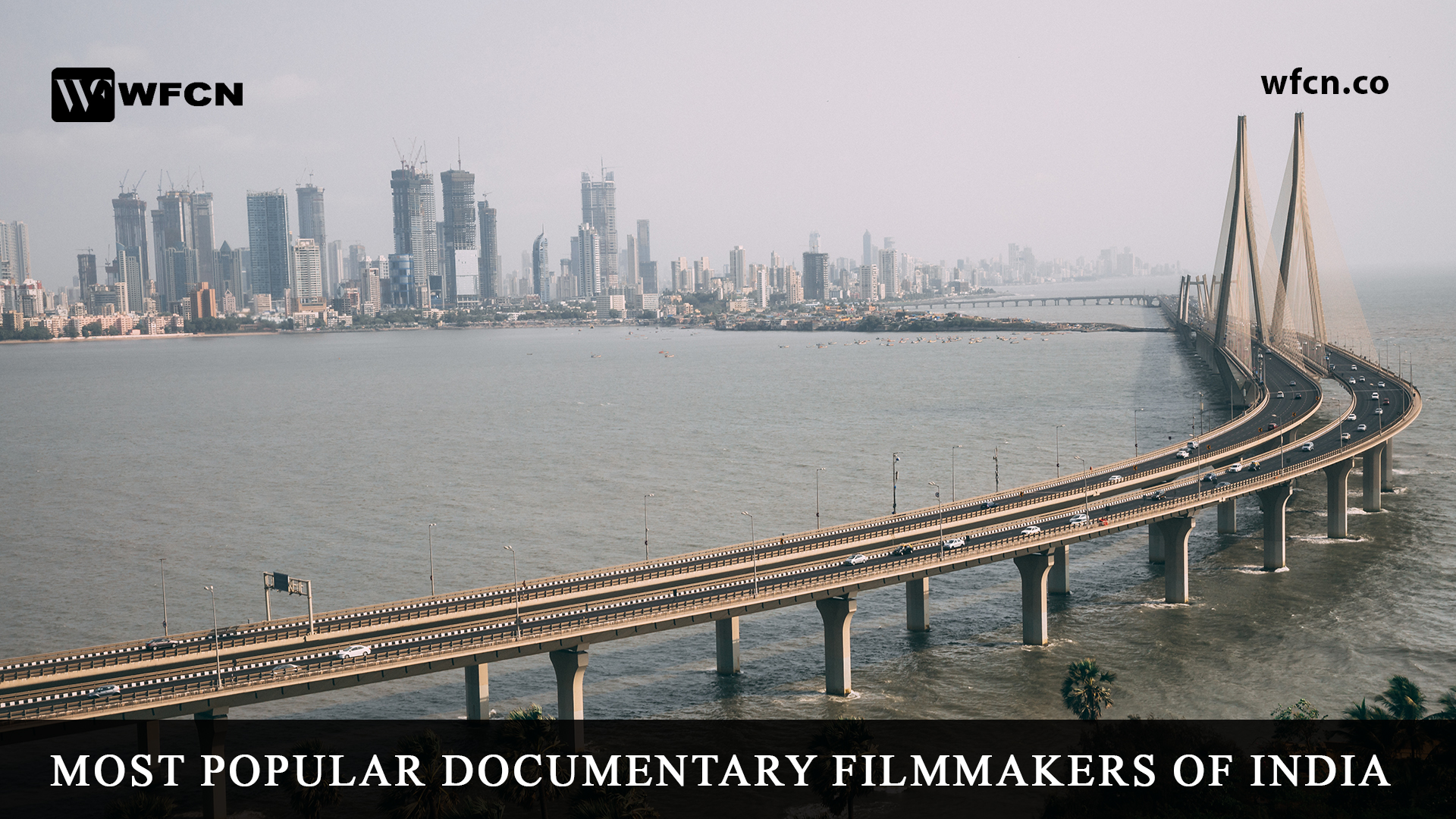Popular Documentary Filmmakers of India
Documentary Filmmaking in India has evolved into a vibrant and diverse landscape, reflecting the country's cultural, social, and political fabric. The roots of Documentary Films in India can be traced back to pioneers like Dadasaheb Phalke, the Father of Indian cinema. From the early days of Indian cinema to the present, Documentaries of India have played a crucial role in capturing the essence of the nation, shedding light on untold stories, and providing a Platform for Documentary Filmmakers that might otherwise go unheard.
In India, documentaries have gained international acclaim, with filmmakers receiving awards at prestigious film festivals worldwide. The recognition of Indian documentaries on global stage has helped bring attention to the unique stories the country has to offer.
Top Documentary Filmmakers of India
Anand Patwardhan:
Anand Patwardhan born 18 February 1950 is an Indian documentary filmmaker known for his socio-political, Human Rights oriented Films. Some of his films explore the rise of religious fundamentalism, sectarianism and casteism in India, while others investigate nuclear nationalism and unsustainable development. Some notable films are Hamra Shahar-Bombay, Our City (1985), In Memory of Friends (1990), In the Name of God (1992), Father, Son, and Holy War (1995), A Narmada Diary (1995), War and Peace (2002) and Jai Bhim Comrade (2011), and Reason (2018) which have won national and international awards.
Sushmit Ghosh:
Sushmit Ghosh is a documentary filmmaker from India. His documentary Writing with Fire, which he co-directed with Rintu Thomas, was he first Indian feature documentary to be nominated for an Academy Award for Best Documentary Feature. The film also won an audience award and special jury award at the 2021 Sundance Film Festival.
Rakesh Sharma:
Rakesh Sharma born in 1964 an Indian Documentary Filmmaker. His most notable work is the feature length documentary, Final Solution on the 2002 Gujarat riots.
Saba Dewan:
Saba Dewan is an Indian documentary film maker based in New Delhi. Her films are based on sexuality, gender, identity, communalism and culture. Her notable works include Dharmayuddha (1989), Nasoor (1991), Barf (1997) and many others. She is best known for her trilogy on stigmatized female performers, Delhi-Mumbai-Delhi (2006), Naach (2008) and The Other Song (2009).
Leena Manimekalai:
Leena Manimekalai is an excellent Indian filmmaker, poet and an actor. Her works include five published poetry anthologies and several films in genres, documentary film, fiction film and experimental poem films. After a brief period as an assistant director with mainstream filmmakers she debuted in 2002 with the Short Documentary Film, Mathamma. The 20-minute-long docu-fiction is about devoting girl children to the deity, a practice prevalent among the Arundhatiyar community in Mangattucheri village near Arakkonam, Chennai.
Shyam Benegal:
Shyam Benegal ,born 14 December 1934 is an Indian film director, screenwriter and documentary filmmaker. Often regarded as the pioneer of parallel cinema, he is widely considered as one of the greatest filmmaker post 1970s. His most notable documentary films are A Child of the Streets (1967), Sinhasta or The Path to Immortality and Quest for a Nation.
K.P. Jayasankar:
K.P. Jayasankar is a documentary filmmaker and researcher who lives in Mumbai. He has over thirty-five documentary films and has over 30 national and international awards in film festivals. His most popular documentaries are A Delicate Weave (2017), So Heddan So Hoddan (2011), Do Din ka Mela(2009) and Our Family(2007).
Anjali Monteiro an Indian documentary filmmaker, media educator and researcher who live in Mumbai. She is co-directed with K.P. Jayasankar, her notable films is A Delicate Weave (2017), Farooq Vs The State (2012), She Write (2005) and Naata: The Bond (2003).
Pankaj Butalia:
Pankaj Butalia is an Indian documentary filmmaker. His 1993 film Moksha (also known by the English title Salvation), on the widows of Vrindavan, received four international awards.
Suma Josson:
Suma Josson is an Indian-American journalist and filmmaker. Her documentary film Niyamgiri, You are still alive, on the ecological and human damage done by bauxite mining, won a first prize in the Short Film, Environment category at the 2010 International Film Festival of India.
Documentary filmmaking in India has come a long way, evolving from its early days to becoming a powerful medium for storytelling and social commentary. As filmmakers continue to push boundaries and explore new narratives, the future of Indian documentary filmmaking looks promising. With increased support from both traditional and digital platforms, documentaries will likely continue to be a potent tool for raising awareness, fostering dialogue, and capturing the multifaceted essence of Indi





